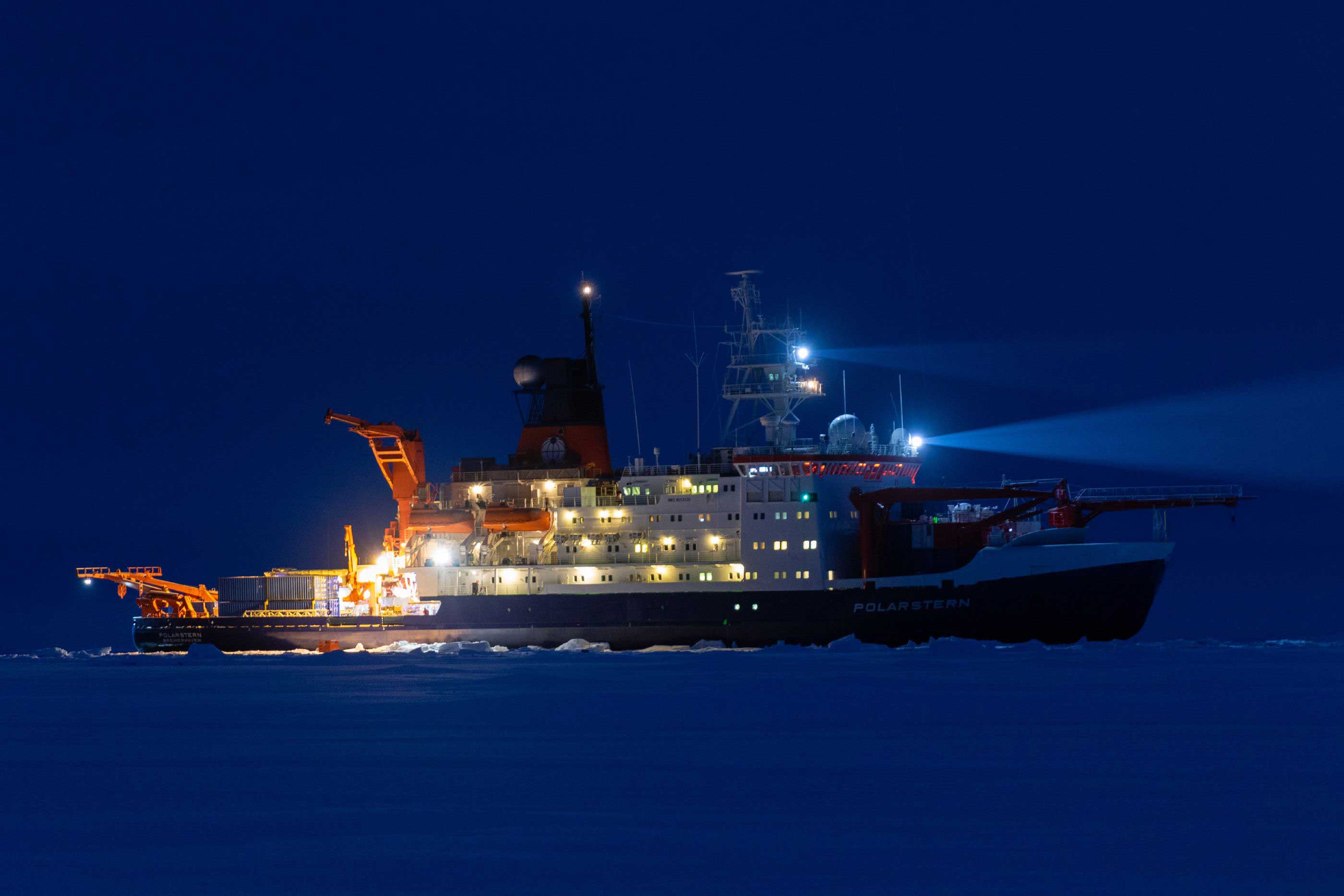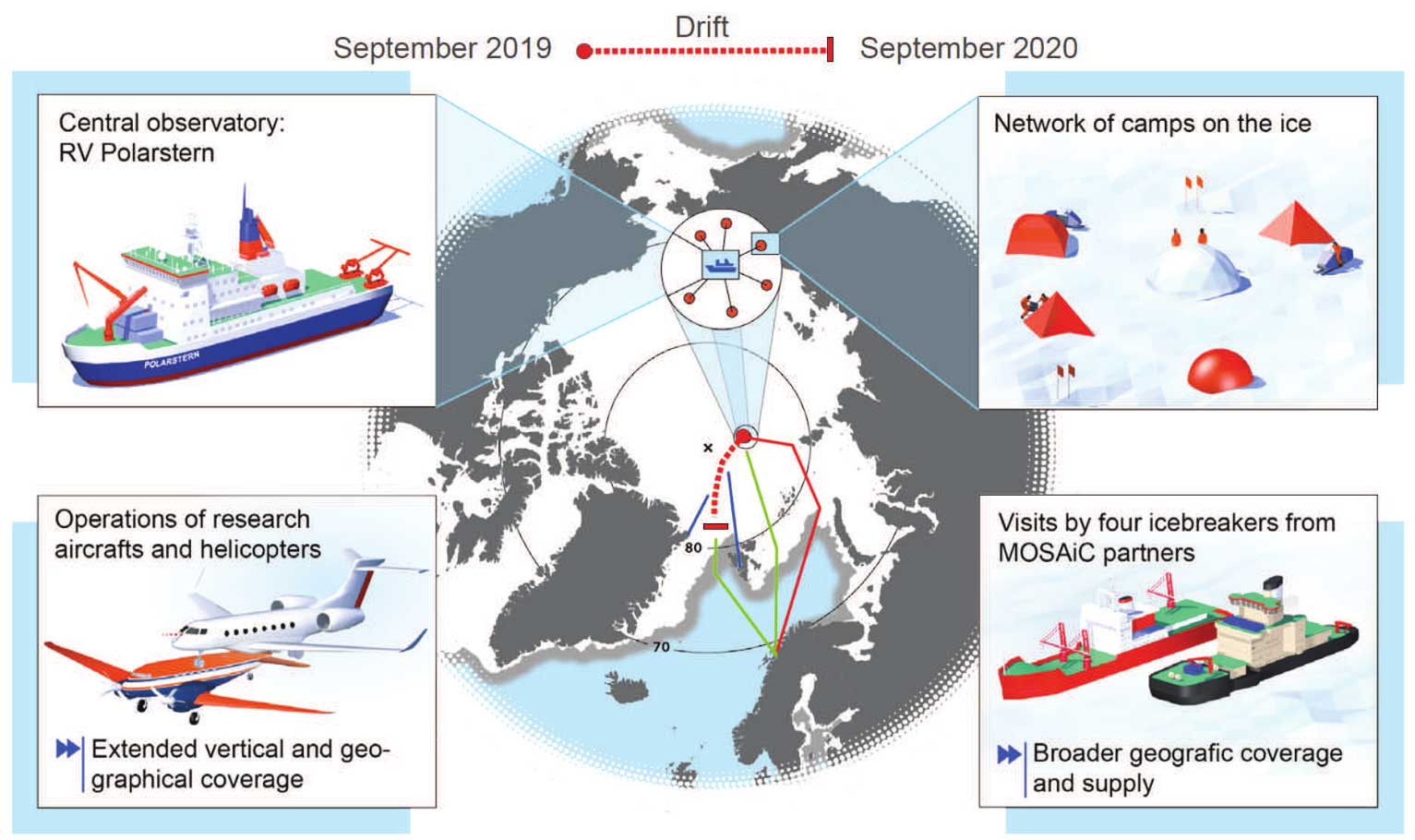MOSAiC 2019 – 2020
An entire year trapped in the ice
The name MOSAiC (Multidisciplinary drifting Observatory for the Study of Arctic Climate) mirrors the complexity and diversity of this expedition.

MOSAiC is the first year-round expedition into the central Arctic exploring the Arctic climate system. The project with a total budget exceeding 140 Million € has been designed by an international consortium of leading polar research institutions, led by the Alfred Wegener Institute, Helmholtz Centre for Polar and Marine Research (AWI). The German ice breaker Research Vessel (RV) Polarstern (central observatory), will be frozen in the Siberian sea ice in fall 2019 along with a distributed network of research sites on the ice. This observational constellation will move across the Arctic ice cap with the natural transpolar drift of the sea ice for a full year. The drifting cruise will be accompanied by a number of intensive aircraft observations, measurements from coordinated ships and land stations, as well as numerous satellite analyses and coordinated modelling efforts including weather forecast and climate models. As a result of the observations, shortcomings in the numerical description of Arctic processes and sources of erroneous forecasts in the Arctic will be identified. This will contribute to an improved understanding of linkages between the Arctic and the mid-latitude weather phenomena and reduce climate projection uncertainties on global and regional scales.

(AC)³ is a major German player within the international MOSAiC consortium in which 17 nations are involved. (AC)³ will lead two of the planned airborne campaigns (MOSAiC-Airborne observations in the Central Arctic, MOSAiC-ACA) using the Polar 5 and Polar 6 aircraft of AWI to complement the observations on RV Polarstern. The airborne campaigns are scheduled to take place in March/April and in August/September 2020. Projects A03, B03, B04, C01 will be involved in these airborne campaigns.
Furthermore, (AC)³ will deliver a crucial component of the remote sensing and in-situ observations on RV Polarstern (projects A01, B04, B05, B07, C01, C04), contribute with the balloon measurements on the drifting ice station (A02), and take part in specific oceanic and sea ice in-situ measurements during the drift (B04, B05, C01, C04). MOSAiC will provide unique opportunities to validate satellite retrievals in the central Arctic (B01, B02, B05, E04). Almost all projects of (AC)³ with modelling focus will use the data collected during MOSAiC. Several PhD students of (AC)³ will directly participate in the six legs of the MOSAiC cruise. Cooperation with MOSAiC research teams in the fields of sea ice physics, physical oceanography, biogeochemistry, and ecology will strongly contribute to the goals of (AC)³.
As a contractual base for the cooperation, (AC)³ and MOSAiC have signed a Moemorandum of Understanding (MOU), also assuring the full mutual access of data.



















